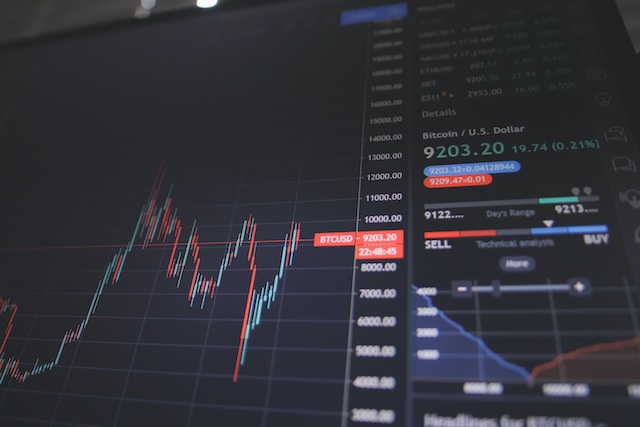Trading Technologies: A Beginner’s Guide to Navigating the World of Trading Technologies
Introduction:
As a personal blogger with a passion for trading technologies, I am excited to share my knowledge and experiences with you in this beginner’s guide. Trading technologies have revolutionized the way we participate in financial markets, offering individuals the opportunity to trade stocks, currencies, commodities, and more from the comfort of their own homes. In this guide, we will explore the basics of trading technologies, discuss essential tools and platforms, and provide valuable tips to help you kickstart your trading journey.
Understanding Trading Technologies:
Trading technologies encompass a wide range of software, hardware, and digital tools designed to facilitate the execution and analysis of trades. These technologies have democratized trading, making it accessible to anyone with an internet connection and a desire to learn. Whether you are a seasoned investor or a complete novice, trading technologies can empower you to make informed decisions and potentially generate profits.
Essential Tools and Platforms:
1. Online Trading Platforms:
Online trading platforms serve as the gateway to the financial markets. These platforms provide access to real-time market data, order placement, and portfolio management tools. Popular platforms include MetaTrader, eToro, and Interactive Brokers. It is crucial to choose a platform that aligns with your trading goals, offers a user-friendly interface, and provides robust security measures.
2. Charting Software:
Charting software is a vital tool for technical analysis, helping traders identify trends, patterns, and potential entry or exit points. Platforms like TradingView and MetaTrader offer a wide range of charting features, including various indicators, drawing tools, and customizable layouts. By analyzing historical price data, traders can make more informed decisions based on market trends.
3. Algorithmic Trading:
Algorithmic trading, also known as automated trading, involves using computer programs to execute trades based on predefined rules and algorithms. This technology enables traders to remove emotions from their decision-making process and execute trades at lightning-fast speeds. Popular algorithmic trading platforms include MetaTrader’s Expert Advisors and NinjaTrader’s automated trading capabilities.
Tips for Successful Trading:
1. Educate Yourself:
Before diving into the world of trading technologies, it is essential to invest time in learning about various trading strategies, risk management techniques, and market analysis methods. Numerous online resources, such as Investopedia and TradingView’s educational sections, offer comprehensive guides and tutorials to help you develop a solid foundation.
2. Start with a Demo Account:
Many online trading platforms offer demo accounts that allow you to practice trading with virtual money. Utilizing a demo account can help you familiarize yourself with the platform’s features, test different strategies, and gain confidence before risking real capital. Treat the demo account as seriously as you would a live account to simulate real trading conditions.
3. Risk Management:
Managing risk is a crucial aspect of successful trading. Set clear risk management rules, such as determining your maximum acceptable loss per trade or using stop-loss orders to limit potential losses. Avoid risking more than you can afford to lose and always maintain a diversified portfolio to spread risk across different assets.
4. Stay Informed:
Keep up with the latest financial news, market trends, and economic indicators that may impact your trading decisions. Follow reputable financial news websites, subscribe to newsletters, and consider joining online trading communities to stay connected with fellow traders and gain valuable insights.
Conclusion:
Trading technologies have opened up a world of opportunities for individuals interested in participating in financial markets. By leveraging online trading platforms, charting software, and algorithmic trading tools, traders can make informed decisions and potentially generate profits. However, success in trading requires continuous education, disciplined risk management, and staying informed about market developments. With the right mindset and dedication, you can embark on a rewarding trading journey using these powerful technologies. Good luck!




